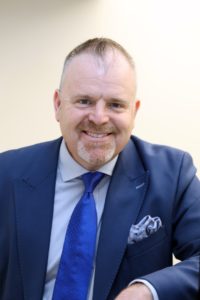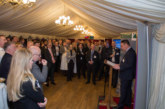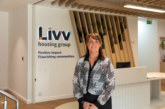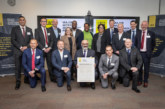A successful trial in flexible working has helped the Fastflow Group to operate safely during the COVID-19 lockdown and to prepare to resume suspended activities, in line with government guidelines.
Undertaken in 2019 the six month pilot project, conducted by group business United Living (UL) in partnership with the Chartered Institute of Personnel and Development and the Government’s Flexible Working Task Force*, included home and remote working — both of which have become essential business practices.
The experience helped UL and other group divisions DW Support Services (DWSS), Fastflow Energy Services (FES) and Fastflow Pipeline Services (FPS) to continue providing essential services to infrastructure, utility and property assets during the lockdown.
It has also informed preparations to resume some of the suspended operations of group member Partner, which develops new homes for the UK’s affordable housing providers.
 CEO and Chairman, Neil Armstrong (pictured left), said: “We have all faced working and personal difficulties over the past few weeks. For us it has been ensuring that everyone stays safe and healthy as we work on the UK’s gas and water networks and carry out important repairs to people’s homes.
CEO and Chairman, Neil Armstrong (pictured left), said: “We have all faced working and personal difficulties over the past few weeks. For us it has been ensuring that everyone stays safe and healthy as we work on the UK’s gas and water networks and carry out important repairs to people’s homes.
“There is no doubt that the lessons learned during the flexible working experiment gave us an advantage in planning new ways of working which meet the Government’s safety and social distancing guidelines.
“Closely following advice from government and the Construction Leadership Council, whilst drawing on our own experience of working safely when providing essential services, we have now developed additional safe systems of working.
“Over the coming weeks, we intend to re-mobilise new housing sites where it is safe to do so. This will be on a graduated, phased and risk-controlled basis, prioritising external work and focusing on areas where social distancing can be maintained. We will continue to review government guidelines and assess the ongoing safety and viability of our operations as the situation progresses.”
Having furloughed about 80% of its 1,100 employees the Fastflow Board voted to take an 80% pay cut and the Executive Team a 54% reduction to protect cashflows and retain staff.
With as many of those remaining at work as possible doing so from home and on-site employees observing safety protocols — such as wearing the appropriate PPE, travelling to site alone and avoiding sharing equipment — Fastflow has continued to undertake projects such as:
- Home working call centre operatives (DWSS) taking reports of domestic repairs to determine which are essential and then detailing teams to carrying out gas, electrical and plumbing work on behalf of clients, such as Southern Housing Group and Catalyst Housing.
- Maintaining water supplies (FPS), including a mains renewal scheme at Belford in Northumberland, deemed essential due to the history of bursts in the area. The kilometer of new piping protects supplies to over 100 homes.
- Ensuring the national gas transmission network operates safely (FES) with projects such as the Kings Lynn Compressor Station Unit A and Unit C disconnection. This is part of the National AGI Renovation Campaign and was deemed critical in order to keep gas flowing and because the outages planned for this year may not be possible next year on such a strategic site.
- Essential safety improvements for residents in a Portsmouth high rise building (UL) where ACM cladding is being replaced.
* The CIPD Flexible Working Task Force was launched in March 2018, with backing from the Department for Business, Energy and Industrial Strategy. United Living was one of ten organisations to participate and the only one in the property sector and the pilot features as one of the case studies in the CIPDs recently published guidance for employers.
Lessons learned have also been shared on a podcast with prominent authors on flexible working published last year.
Background information: CIPD article ‘Flexible working: the business case’ is available to read here.









